A few years ago, the IMA team started a new tradition. At the end of the year, we gather all of the essays I had written throughout the year, organize them by topic, sprinkle in some art, nip and tuck them into a single PDF, and voila, we have an almanac. You can download the PDF here.
Our hope is that this almanac will allow new readers to explore my past essays and dedicated readers to revisit any essays they may have missed originally.
I love working on this project for this moment, for right now. While writing this intro, I reflected on the passing year through the lens of the essays I’ve written. In 2023 I published 32 essays (I just counted them). Judging solely by quantity, this was my most prolific year. I wrote 22 essays in 2021 and 28 in 2022. (Although, in defense of those years, I was writing and then releasing a book during that period.)
I have to confess; writing is a very capricious adventure. I have little control over where the stream of thoughts that passes from my subconscious to my conscious awareness will take me. I just have to show up and be ready to be the vessel for it. Just as you cannot reenter the same river twice, I cannot write the same essay twice.
If what I just said has a metaphysical feel to it, so be it. I have been writing for twenty years. Almost every single time, when I read what I just wrote, I get a hard-to-describe feeling somewhere between wonder and amazement. Not because what I wrote is so brilliant, but because the lack the ownership I experience for the sentences that came out of my own mind. I did not know I was going to write them when I sat down to write. It’s a surreal experience.
I can relate so much to what Jhumpa Lahiri (supposedly) said: “Writing is a transcendental experience, where I am both the creator and the created, author and character, writer and reader.”
Rereading my essays, I relive the year again; they are tiny bookmarks of my life, which makes the almanacs bookends of the year. As I am reliving 2023 through my essays, I find that four of them had lasting impacts on me, which I want to highlight here.
The Real Country of Contrasts: Our Trip to India (page 108) . In January, my then-17-year-old daughter Hannah and I went on a ten-day trip to India. Hannah, who, like most teenagers, is a part time student at TikTok University, told me a few days ago that she had been informed on TikTok that most men think about the Roman Empire on a daily basis. She said, “The trip to India is my Roman Empire; I think about it daily.”
I personally don’t think about the Roman Empire every day (maybe only when I think about the gradual decay of the US – okay, so maybe more often than I care to admit), but Hannah and I do think about this trip to India daily. It has recalibrated the lenses through which I look at the world. I cannot wait to go back to India again.
Life is a Walk – Santa Fe (page 149). My family started a tradition in 2013 when my father and I took my then-12-year-old son, Jonah, to Santa Fe. We have gone every year since, even during the pandemic. I have been writing and adding to this essay since 2013, including something new after each trip. This year, I added a section titled “Life is a Walk.”
Santa Fe has become a special place for my children, where they have spent time with their grandfather and father. It holds wonderful memories for them. On this year’s trip, I noticed a shift in my kids: These trips have changed them, and art has become part of the internal fabric of their being.
You Are – What You Think About (page 54) This essay is very short, but it had a significant impact on me. Though the initial purpose of the essay was to explore how much we should think about the economy, this paragraph really made me reexamine many aspects of my life:
There are three versions of ourselves: what people think of us, what we think of ourselves, and who we actually are. There is a saying, “Don’t tell me what you care about, show me how you spend your time.” We are at peace when who we think we are and who we actually are largely overlap. We are even more at peace if the two overlap in the version we’d like to be.
The alignment of who you want to be and who you actually are is one of the most important secrets to happiness in life. When your behavior is misaligned with your values, when what you do day in and day out is misaligned with what you want to be and to be doing, and when the version of yourself you show to the world is very different than the real you, you will experience dissonance – an internal conflict.
And then there’s Fyodor Dostoevsky’s advice in Brothers Karamazov: “Above all, don’t lie to yourself. The man who lies to himself and listens to his own lie comes to a point where he cannot distinguish the truth within him or around him, and so loses all respect for himself and for others.”
This is why meditation is so important; it is a way for us to listen within ourselves for this dissonance.
My Father – a Life Worth Living (page 156). This was the most important and most difficult essay I’ve ever written, for several reasons. It was my way of mourning the loss of one of the most important people in my life. I wanted the world to see who it lost – an incredible responsibility. Writing about my father’s life made me go back to dark corners of my own life. I squeezed out every ounce of myself for four weeks to get it right.
This essay has changed me. Mark Twain said, “The two most important days in your life are the day you are born and the day you find out why.” Writing this essay, examining my father’s life, inadvertently turned into an examination of my own life and a better understanding of my “why.”
As I was thinking about my father’s life, I realized that he always stood up for what he believed was right, no matter the consequences. I also realized that my father’s life was a blueprint for mine. I want my life to be a blueprint for my kids. I want my kids to experience the same pride when, hopefully a long time from now, they examine the life I lived.
Most importantly, I realized I want to be an agent for positive change in the lives of others.
My first responsibility is of course to my family, especially my kids. Kids don’t come with an instruction manual, so I am doing the best I can. I am sure I can do better, and I will.
I am doing that at IMA, too – I am constantly trying to improve as an investor.
Then I have my writing. This is where this essay about my father changed me the most. I have a large audience and thus a large responsibility. I found I was holding back. I was not afraid to write about important, difficult, often divisive topics that were important to me, but I was held back by my default programming flaw – I like to be liked.
Up to now I had for the most part avoided these topics. I stuck to the “safe” ones – the stock market, philosophy, classical music, life. Even my views about Russia’s invasion of Ukraine, while they may not be mainstream in Russia, they are in the US.
However, when you go through life trying to be liked and avoid upsetting other people, you may end up standing for nothing. I don’t want to look back at my life and think I held back, that I didn’t stand up for what is right, that I didn’t make the positive change I could have because I didn’t want to make some people upset at me. Unions: From Stimulant for the Economy to Cancer (page 86) was an essay I should have written a decade ago. I am sure it upset some readers and even lost me some.
My father’s death changed me. The events of October 7th in Israel and the antisemitic marches that followed around the world, before Israel even had a chance to respond, have also changed me. I wrote about this change in essays about Israel (see page 5). I am a different person now; my self-censorship is gone, I’ll stand up for what (I think) is right, regardless of the consequences. This doesn’t mean that I’ll only be writing about sharp topics, not at all. But I won’t be avoiding them either.
2023 was a year of alignment, an important year when I figured my “why”. I am more aligned with what I want to be in this life. As Marcus Aurelius said: “Waste no more time arguing about what a good man should be. Be one.”
If you would like to download my previous almanacs, here is a link for 2021, and here is a link for 2022.
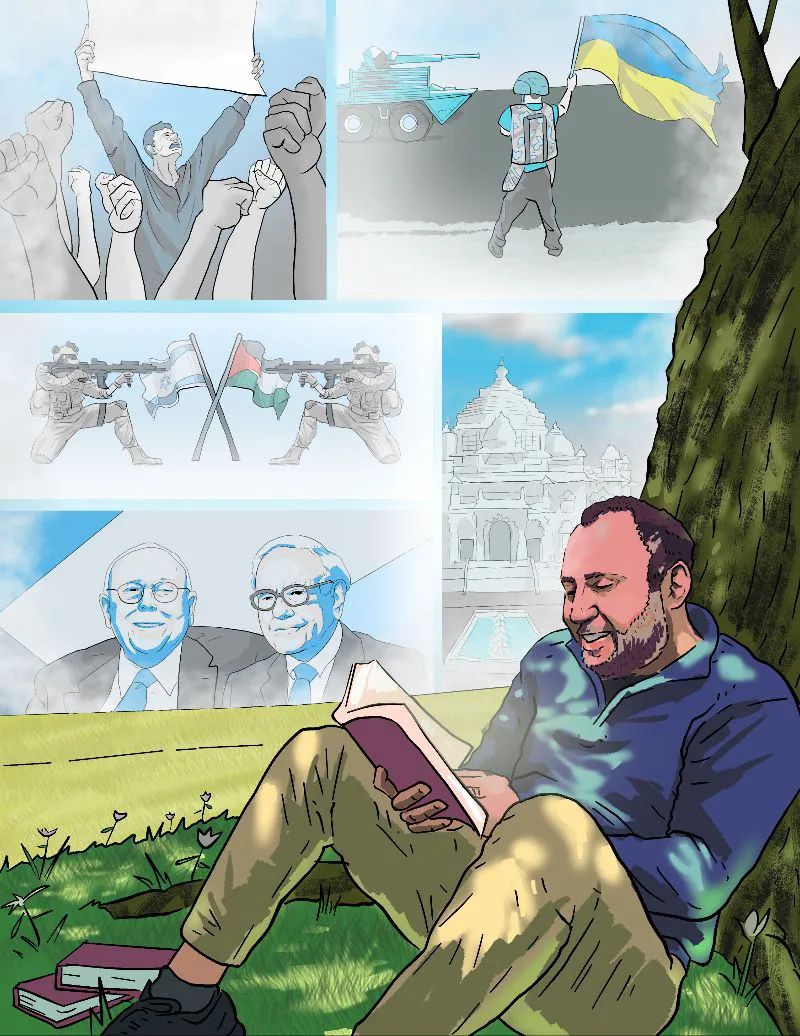
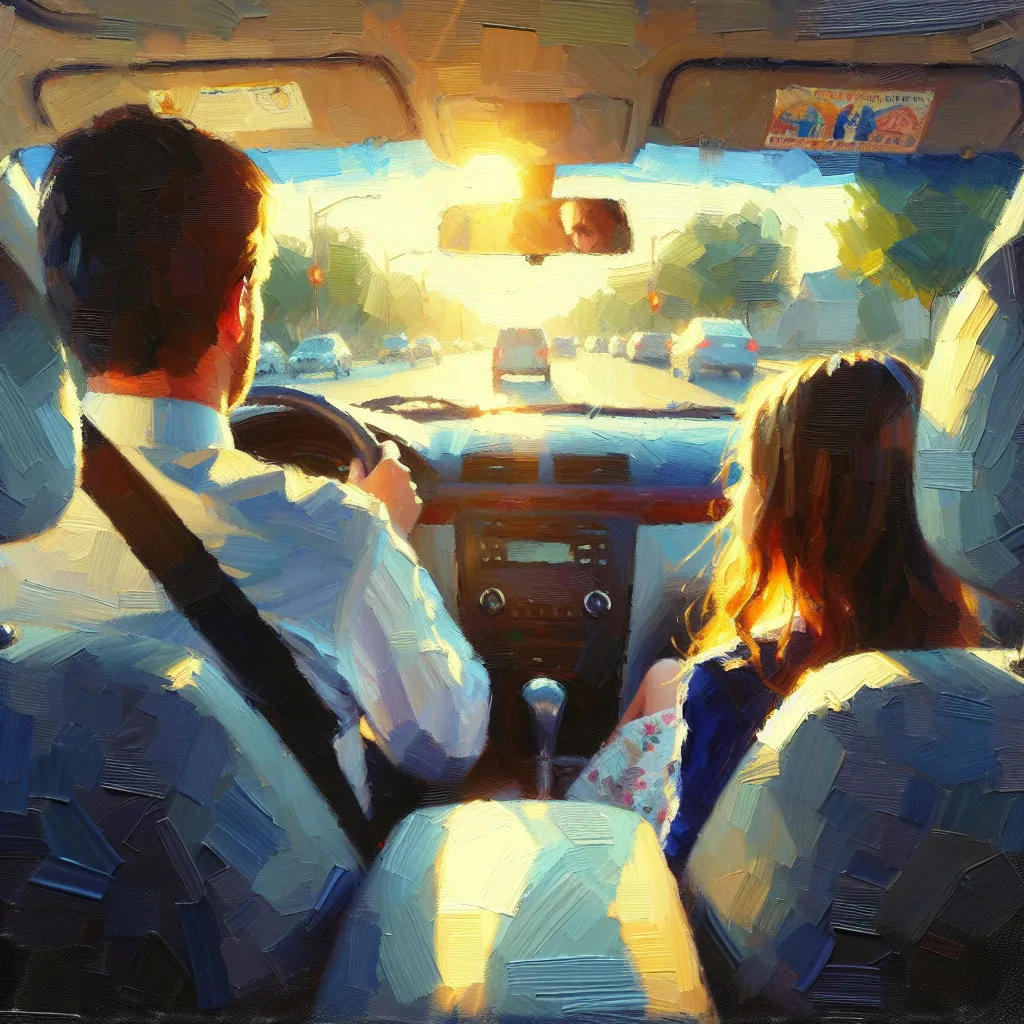
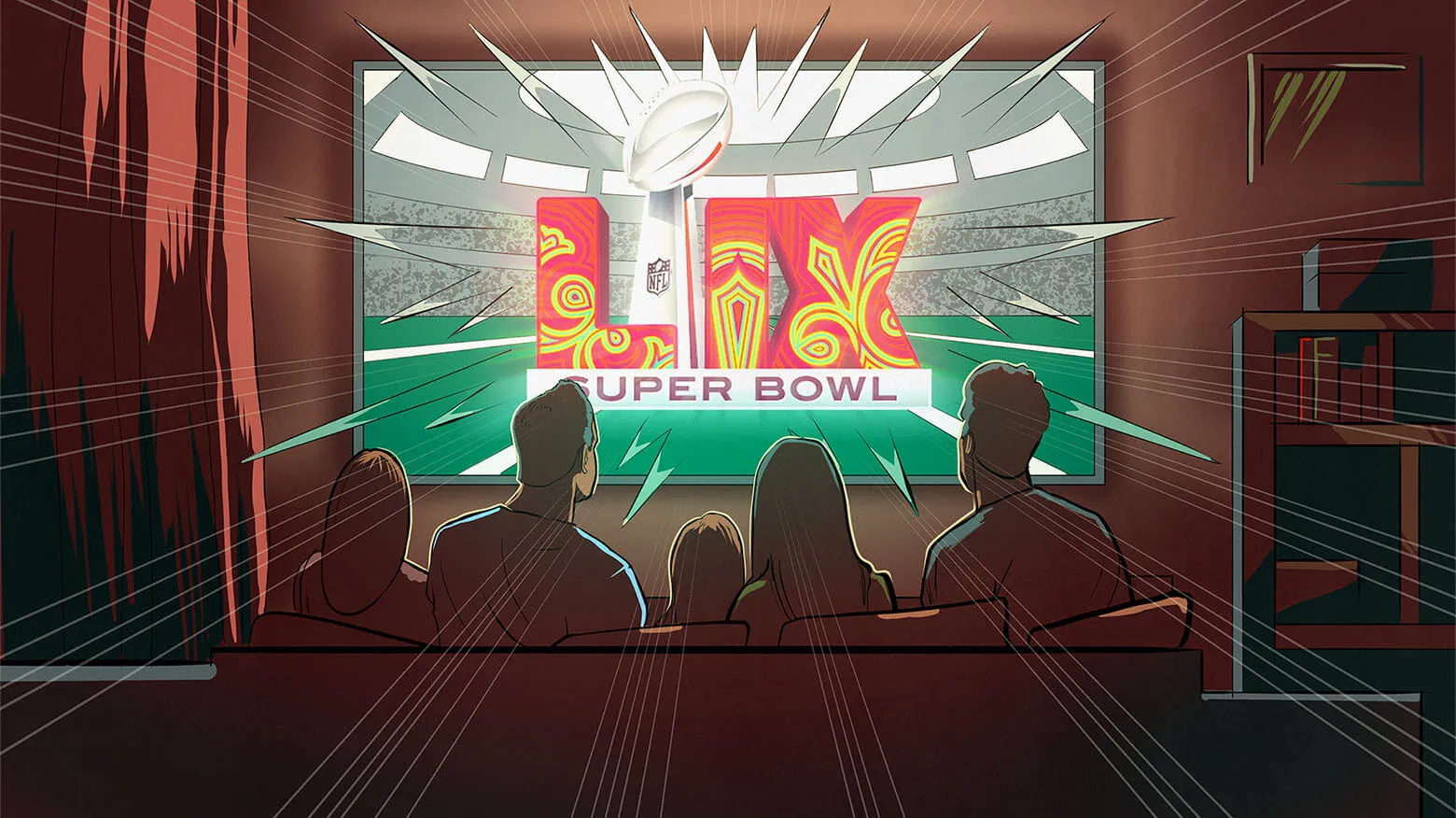
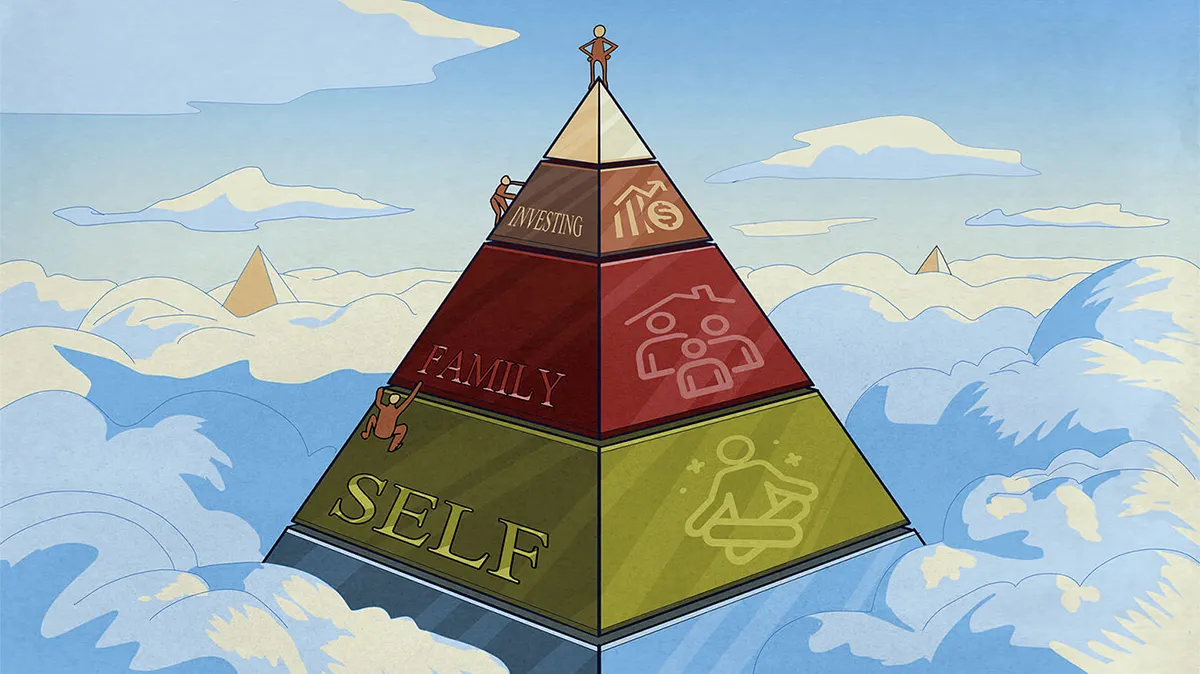
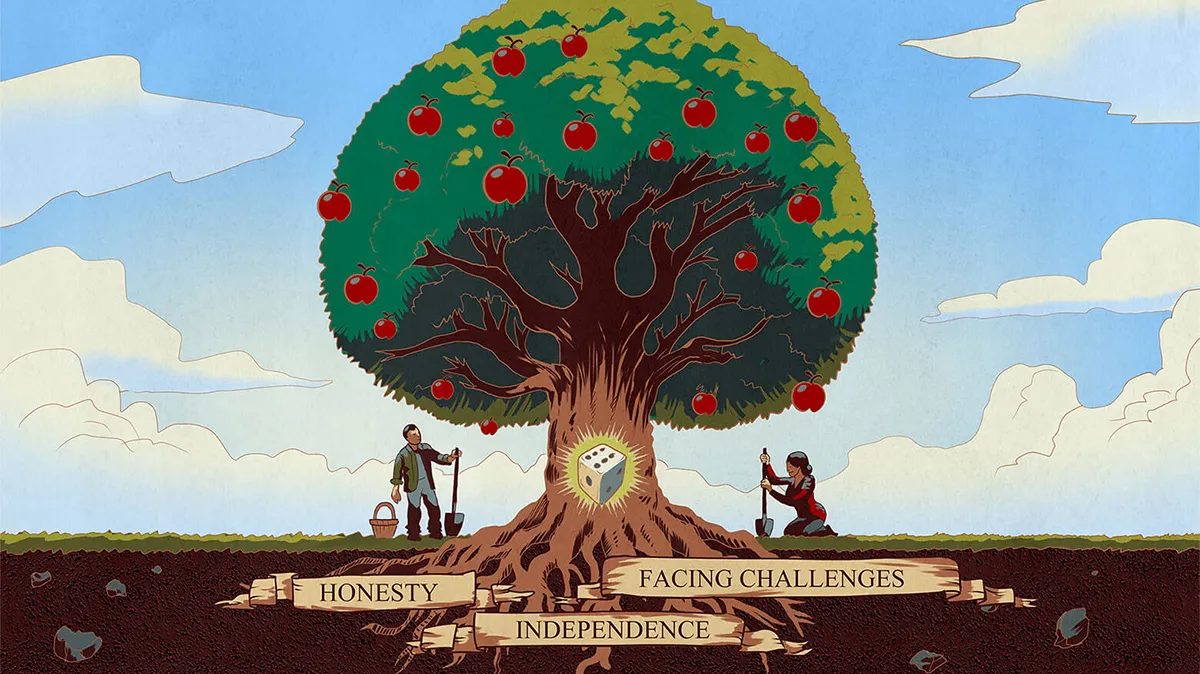




0 comments